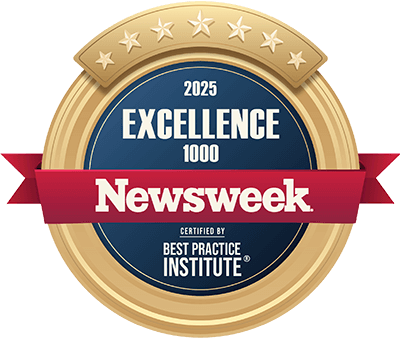Supply Chain Software Development Services
Supply chain software development services are a way for any company to get a robust supply chain solution bound to its unique needs while ensuring optimized project costs and minimized implementation risks.
Since 2012, ScienceSoft has been helping companies from 30+ industries design and implement reliable supply chain management software.
Supply chain software development aims to help companies drive improvements across their supply chain processes and innovate business operations with the help of effective software and Supply Chain 4.0 techs: IoT, AI/ML, big data, blockchain, AR and VR.
Benefits of Digital Supply Chain Management
Increased precision of demand forecasting and eliminated stockouts and overstocking
Full visibility into an extended supply chain and high efficiency of risk management activities
Enhanced accuracy of inventory planning and lower inventory carrying costs
Optimized resource utilization (labor, transportation, etc.)
Streamlined fulfillment of sales orders
Improved collaboration with suppliers
Supply Chain Solutions and SCM Software Features ScienceSoft Delivers
We offer full-cycle development services to plan and implement one or several integrated supply chain software solutions that introduce powerful functionality for the necessary SCM areas:
- Demand forecasting.
- AI-supported recommendations on supply chain optimization (e.g., how much and when to order).
- Supply chain digital twin – a real-time supply chain model to test different supply chain action plans (e.g., safety stock planning, transportation optimization) and evaluate their impact before choosing the best one.
Value: improved and more cost-efficient fulfillment of customer demand, increased resource utilization, synchronization between different supply chain components.
Supply chain risk management
- Supply chain control tower, offering real-time, AI-supported visibility into all supply chain operations, including operations of suppliers and external carriers.
- Configurable dashboards for a unified view of supply chain processes and related KPIs (fill rate, order cycle time, etc.).
- Collaborative issue resolution with suppliers via a shared space for issue discussions, issues status tracking and notifications, etc.
Value: end-to-end supply chain visibility, proactive risk management, improved collaboration with suppliers.
- Inventory levels and location tracking (with a barcode, RFID, or computer vision technology).
- Optimal safety stock calculation.
- Automated replenishment triggers.
- Lot and serial number tracking.
- Expiration dates and shelf life monitoring.
Value: decreased inventory carrying costs, increased order fulfillment speed and accuracy, optimized labor costs, minimized inventory loss and shortages.
- Freight tracking.
- Planning and optimization of route schedules.
- Vehicle accident case management (accident notifications and reports, repair request issuing and routing, etc.).
- IoT connectivity to monitor product condition during transportation.
Value: improved vehicle utilization, decreased logistics operating costs, on-time delivery.
- Quick template-based creation of purchase requisitions, RFxs, and purchase orders.
- Automated approval workflow for purchase requisitions and purchase orders.
- Analytics-based recommendations on supplier assignment to purchase orders.
- Creation and management of preferred supplier lists.
- Automated three-way matching (purchase orders, order receipts, and supplier invoices are cross-compared to reveal inconsistencies if any).
- Purchase order execution tracking (for several tiers if required).
- Collaboration tools to discuss orders with suppliers.
Value: standardized and streamlined purchasing, improved spend visibility.
- Analytics-based supplier pre-qualification (financial viability, technical capabilities, ethical business processes, etc.).
- Quick template-based creation of sourcing events (e-tenders, e-auctions).
- Collaboration with internal teams on supplier selection and nomination.
- Supplier performance analytics and ongoing compliance checks.
- Supplier portal for improved capacity planning (via collaboration with suppliers), etc.
- Automatic alerts for suppliers to update expiring data (accreditations, certifications).
Value: reduced supply chain compliance and regulatory risks, improved supplier engagement, optimized sourcing strategy.
- Centralized processing of multichannel, multi-format sales orders, and purchases.
- Analytics-based order routing to an optimal fulfillment location.
- Support of multiple order fulfillment methods and types (BOPIS, ship-from-store, same-day delivery, etc.).
- AI-guided order picking and packing.
- Automated return management.
Value: increased order fill rate, reduced order fulfillment costs, reduced shipping and expediting costs, increased customer satisfaction rate.
- Calculating and monitoring all necessary supply chain KPIs: supply chain performance, orders, inventory, employee productivity, supplier risks, spend, and more.
- ML-based supply chain diagnostic analytics.
- Trend-based forecasting of supply chain metrics, transactions, and events.
- AI-powered prescriptions on optimal supply chain management decisions.
- Scheduled and ad hoc supply chain reports.
Value: accurate supply chain planning, minimized supply chain risks, optimized costs.
SCM software integrations we implement
To introduce a cohesive supply chain automation environment, our supply chain development company helps integrate SCM software with the following systems:
|
|
With ERP, MES, OMS, accounting software, and other relevant business systems – to improve supply chain planning and control. |
|
|
With third-party software, e.g., supplier or distributor systems – for seamless collaborative supply chain management. |
|
|
With hardware (barcode scanners, RFID readers, computer vision systems) – to automate employee workflows across inventory identification, counting, and tracking. |
|
|
With a business intelligence (BI) solution – to leverage supply chain data for enterprise-level analytics. |
Our SCM Software Development Service Scope
Supply chain management software consulting
We create an optimal technical design for your SCM solution, provide expert advice on the project cost optimization, and introduce a detailed implementation plan for minimized risks.
End-to-end supply chain management software development
We design and build your SCM solution, integrate it with the required systems, and run all necessary QA procedures. We can also provide user training and after-launch software support.
Why Trust SCM Software Development to ScienceSoft
- Since 1989 in IT and 750+ professionals on board.
- Since 2012 in supply chain software development.
- Practical knowledge of 30+ industries, including manufacturing, retail, healthcare, construction, energy.
- Proficiency in advanced techs, including IoT, AI/ML, big data, blockchain, AR and VR.
- In-house project management office to run large-scale supply chain digital transformation projects.
- Quality-first approach based on a mature ISO 9001-certified quality management system.
- Robust security management supported by ISO 27001 certification.
Our awards, certifications, and partnerships
How to Develop Supply Chain Software
Below, ScienceSoft describes key steps that our teams perform to introduce reliable, future-ready supply chain software:
Step 1.
Business analysis and requirements engineering
- Analyze your supply chain strategy and operations, define how well they align with your overall business strategy.
- Evaluate how your supply chain operations are currently supported with the technology. Identify the areas of improvement and map them to possible technology solutions.
- Define software requirements in collaboration with your subject-matter experts (planners, procurement specialists, inventory managers, etc.).
- Introduce a high-level solution vision and scope reflecting our assumptions on how the SCM software should work. Provide discovery estimates.
Step 2.
SCM software design
- For custom software: Create an optimal feature set for your SCM solution. Design software architecture in accordance with the performance, scalability, security, and compliance requirements. Choose a technology stack. Prepare UX and UI mockups. Introduce a plan of integrations with the required systems.
- For platform-based software: Select the best-fitting products and prepare configuration and integration specifications.
We suggest creating a proof of concept if you want to build an innovative Supply Chain 4.0 solution like a SCM blockchain or a computer vision system for inventory counting. It helps easily test the software usability, assess its viability for business needs, and avoid costly redevelopment at later project stages.
Step 3.
Project planning
- Define project objectives, deliverables, and tailored sets of KPIs to evaluate success.
- Determine the project scope, duration, schedule, and budget.
- Decide on the roles in the project team and design efficient collaboration workflows.
- Plan the knowledge sharing procedures and responsibilities.
- Identify possible SCM software implementation and adoption risks, create a risk mitigation strategy and plan.
Step 4.
Development and QA
- Establish IT automation (CI/CD pipelines, cloud automation, etc.) to streamline development, testing, integration, and releases.
- Develop a custom supply chain management solution OR select and set up off-the-shelf software.
- Run system testing (covers functional, performance, usability, security testing) in parallel with coding.
- Migrate necessary data from the currently used SCM systems.
Step 5.
Integration and deployment
- Integrate your SCM solution with the required software and hardware systems.
- Configure the software infrastructure, implement robust security mechanisms.
- Deploy the solution to the production environment.
- Provide all necessary software documentation (documented source code, a maintenance guide, tutorials for end users, etc.).
- Conduct user training in a preferred format.
An enterprise-wide SCM system should be first deployed to one of the target employee groups or facilities for a pilot run. This way you’ll be able to handle possible issues and change requests before rolling out the solution at the enterprise level.
Step 6.
Support and evolution (optional)
- Monitor SCM software performance and handle operational issues.
- Provide L1–L3 user support.
- Scale the software to process a growing volume of supply chain data.
- Perform regular security and compliance audits and deliver comprehensive reports.
- Upgrade the software with new functionality to support your evolving needs.
ScienceSoft’s Practices to Drive SCM Software Development Success
In our SCM projects, we deliver the required functional scope despite timeline and budget constraints while avoiding scope creep and agilely adapting to feasible changes. You’re welcome to study the details of our project management and development practices below.
If you are wondering how our approach will work for your SCM initiative or want to receive a tailored pack of project descriptions and client references relevant to your case, don’t hesitate to contact our consultants.
Understand our ISO 9001-supported quality management procedures at each software development stage and check the KPIs we use to evaluate software and project health. Here, you can see our sample KPI-based reports.
Get an idea of our knowledge creation, transfer, and maintenance procedures and check how we share responsibilities in these activities. We also show examples of documents we deliver at each SDLC stage.
Learn how we safeguard our clients’ assets and discover the ISO 27001-approved security principles we follow to foster security in SCM development projects.
We negotiate software warranty terms individually for each project. Explore the typical scope of our after-launch support activities and check the warranty exclusions.
Technologies & Tools We Use
Our supply chain software development company relies on the following proven techs and tools to speed up SCM software implementation and optimize cost:
Low-code development
Blockchain tools
Supply Chain Software Development Costs
To estimate the cost of supply chain management solutions, ScienceSoft takes into account the following factors:
- The number and complexity of SCM functional modules.
- The scope and complexity of integrations with the required software.
- Data volume used for analytics, the need to implement machine learning algorithms and their complexity.
- Required application types – web, mobile, desktop – and a number of platforms supported (for mobile apps).
- Non-functional requirements: availability, performance, scalability, security, and compliance.
How we optimize the cost of supply chain software implementation
|
|
Learn the Cost of Your Supply Chain Solution
Please answer a few questions about your business needs to help our experts estimate the cost of your custom SCM software quicker.
Explore our supply chain software development services in detail.
Thank you for your request!
We will analyze your case and get back to you within a business day to share a ballpark estimate.
In the meantime, would you like to learn more about ScienceSoft?
- Project success no matter what: learn how we make good on our mission.
- Since 2012 in supply chain IT: check what we offer.
- 4,200+ successful projects: explore our portfolio.
- 1,400+ incredible clients: read what they say.













